What are the prospects for 2024? How can Ukraine achieve more military successes? What has to happen in the West in order to strengthen the political will and the economic and industrial capacities to increase military assistance to Ukraine? These were the main topics of Slovakian think-tank GLOBSEC’s online panel discussion “Ukraine 2024 – Can Freedom Still Win?”
The speakers of the event were Alena Kudzko, Vice President for Policy and Programming at GLOBSEC, and Elina Beketova, Democracy Fellow in the Washington-based Center for European Policy Analysis (CEPA from now on). In his opening speech, the moderator of the event, Roland Freudenstein, Vice President of GLOBSEC, briefly summarized the military situation, especially the shortage of ammunition on the Ukrainian side.
The Existential Fight of Ukraine
Elina Beketova admitted that the end of last year and the beginning of this one were very tough. However, according to her, the general mood in Ukraine is still hopeful. She told an anecdote about a serviceman who lost his leg in battle. He is still in recovery but already thinking about how to contribute to the victory.
“The shelling and drone attacks make the Ukrainians angrier and more resistant, they know if they don’t fight, there will be «Buchas» in every home.”
Then, the moderator asked the panelists about the controversial recruitment bill. (Since then, the Ukrainian government withdrew the earlier draft law on mobilization and submitted a new one.) The CEPA fellow said she heard about the skeptic view about Russia’s superiority manifested not only in weapons but in population, and this will continue to tilt the playing field to Ukraine’s side. To disprove that argument, she said she knows a lot of Ukrainians who still want to be conscripted and drafted. “Ukraine still has enough people to continue its fight against the invaders; they continue to fight as long as they have to. I do believe freedom can still win, stated Elena Beketova.
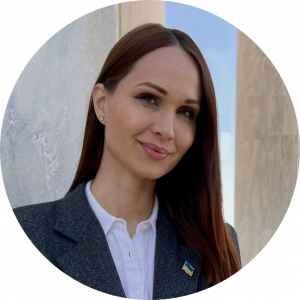
Elina Beketova (Source: cepa.org)
Alena Kudzko, in her comment, also told a short anecdote about U.S. president Joe Biden and Golda Meir, former prime minister of Israel, which reflects Ukraine’s current situation when “there is no place to run away to.” The expert agreed that it’s a difficult moment for Ukraine. There are several sets of arguments that have been highly debated not just in the European discourse but also in the U.S. According to Kudzko, the first argument concerns the reality of the distribution of resources: there are a lot of people who would say that we have limited resources and that giving all of them to Ukraine may not be the most efficient way to act right now. This worries the people who genuinely want Kyiv to win.
“We have right now a sense of shortsightedness: for many people in Europe, it’s still hard to imagine that Russia will actually attack them.”
“So it is difficult to convey to the European public, which had not been at war for many decades, who are struggling to imagine that this reality actually can happen,” elaborated Globsec’s V.P.
Western Lack of Support?
At some point in the conservation, Alina Beketova retrieved her experience about the denial strategy that existed in the West: “After the full-scale invasion, for example, in Germany, the people were shocked when they realized Russia’s imperialist methods and desire to eliminate another nation.”
“I had the feeling that the Western nations needed more time to accept the new reality.”
“Before that, they thought that if we did nothing, the aggressor wouldn’t do anything either. The strategy of appeasing the aggressor, as we see, is simply not working.”
“In our case, we understand if Ukraine ends the fight, then we won’t have our nation, while if Russia stops fighting, they will just withdraw their soldiers so the war will be over.”
Freudenstein confronted the CEPA fellow with the oft-heard, typically pro-Kremlin counterargument. “This is a fight about the existence of Russia,” moreover “it is not only the Ukrainians but the whole West is trying to destroy the Russian homeland, so this is just some kind of forward defense.” In her reply Beketova noted that Russian propaganda is doing nothing but mobilize the nation against the whole world. “This is a horrible, psychopathic attitude towards the people and an explanation of everything. The Russian people have to believe it’s not safe anywhere outside of the country.”
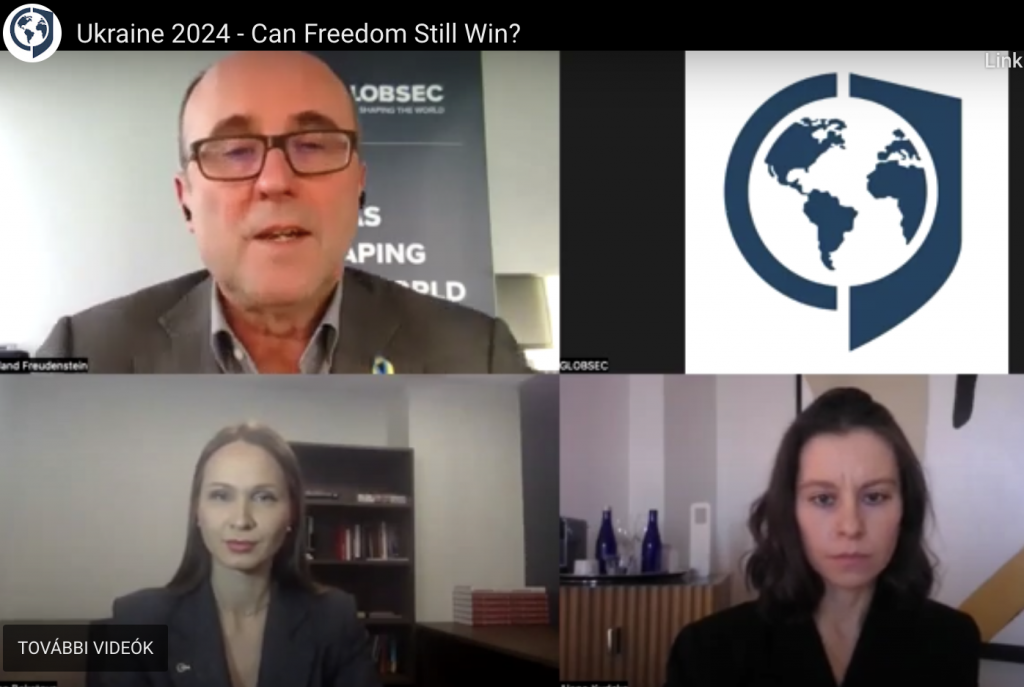
Screenshot from Can Freedom Still Win? online discussion (Source: Youtube)
Fear of the Far-right
Alena Kudsko mentioned the politicians who are genuinely standing with Kyiv also have to consider matters like the cost of living, inflation, and the energy crisis, especially in this year of many important elections. “If they don’t care about these issues, the far-right can gain more influence by saying we need to care for our voters first. We might end up with a Europe of Orbans and Marine Le Pens, even the Ukrainians don’t want that,” stressed the vice-president of Globsec. Kudzko also highlighted: “There are more nefarious arguments about Russia not being able to be defeated, so they say this is the time to negotiate with Moscow. These arguments are not that fringe, and they are voiced by various politicians, including Viktor Orban and Robert Fico.”
She pointed out the flaws in these arguments, including that we have already learned many times that Russia doesn’t have the will to negotiate, and Moscow also doesn’t really stick to agreements that it had made in the past. “Thus, hoping that Russia will be nicer or kinder is not necessarily a very wise strategy from the European side.”
Beketova agreed that at the moment the entire military and financial support from the U.S. is stuck at the moment.
“I completely agree, at this point, the supplemental bill is kind of stuck. But, there are people who I really trust who told me that despite the delay, a further $60 billion of U.S. aid to Ukraine will still be approved, and majorities of both Republicans and Democrats agree that helping Ukraine is the U.S. National interest.” (Update: Since then, the bill passed in the U.S. Senate.)
“Even if Congress won’t pass it right now, the Biden administration actually has other means of supporting Ukraine. It can exercise the authority to lend Kyiv funds through defense articles based on the already approved land lease act. Also, you might have heard about the frozen assets of Russia that can be liberated for Ukraine,” she added.
What about what will happen if Trump wins? According to Beketova, it is another complex question, but she is sure that Kyiv will work together with any president that the American people will elect.
The CEPA fellow understands that messages during presidential campaigns can often differ significantly from those during the actual presidency. She believes in checks and balances within the American system, and it’s in the United States’ national interest to deter authoritarian states that want to redraw maps by force. Alina Beketova highlighted that it is difficult to believe that Donald Trump will abandon Ukraine because he was the one who had approved sanctions on Nord Stream, and he was also who first sold lethal weapons to Ukraine.
In response to The Long Brief’s question about the Ukrainian procurement fraud, the CEPA fellow said as far as she knew, there are investigations, and the anti-corruption fight is a very important phenomenon in her country.
In Ukraine, there are at least five anti-corruption agencies working on corruption cases.“I feel that we have the system changed and people will no longer tolerate corruption.”
Especially in these times when, unfortunately, many people have been killed or injured, there is zero tolerance for any kind of corruption. There are investigations in every case, but it takes time to find evidence of whether the allegations are true or not. Then, all the people responsible for any type of fraud would be prosecuted, and they would be in jail. The Ukrainian government has at least several examples that prove that it is combating corruption.

Alena Kudzko (Source: globsec.org)
Alena joined her colleague when she mentioned that Ukraine should proceed in fighting corruption because there are arguments that are used in the West about why we shouldn’t support Ukraine because it is a corrupt country.
According to Kudzko, Kyiv did make a lot of progress, but it needs time to change the system. There are EU countries that also have the same problems, but it doesn’t mean these countries are defunct by design.
She also added, “If we look at, for example, the Transparency International rankings which are done on this subject, Ukraine actually ranked somewhere at the same level as Columbia or Mexico. These countries are part of OECD, and nobody has any concerns about investing in these countries.”
In Lieu of Conclusions
At the end of the panel discussion, the moderator summarized the main takeaways. Freudenstein mentioned that the military situation is critical for Ukraine, but Kyiv has enormous potential. The Ukrainians are motivated because they know that if they stop fighting, it’s the end of their country.
The argument for potential peace talks is completely flawed on many fronts.
First of all, Putin does not want to negotiate at the moment, and he still has the goal of making Ukraine a de facto part of Russia. Also, the escalation argument is just an empty threat from Moscow. Therefore, more and better material should be delivered to Ukraine if we want Kyiv to prevail.
“Either way, whatever happens till the U.S. elections and whatever happens after that, Europeans will have to invest much more in their own security. They have to do so not to become an independent actor on the world stage, it won’t happen quickly anyway, but to be able to defend themselves. Until that time comes, the EU needs to keep Washington involved in European security. Helping Ukraine defend itself is just the centerpiece but not the whole of this story, which is much wider,” concludes Roland Freudenstein.

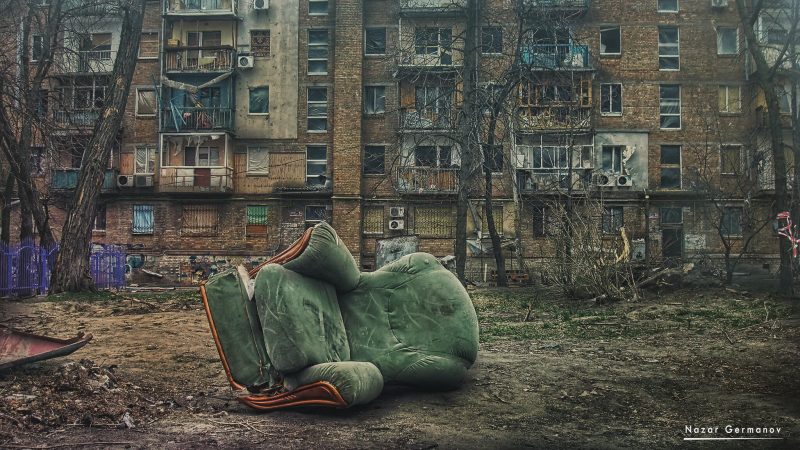
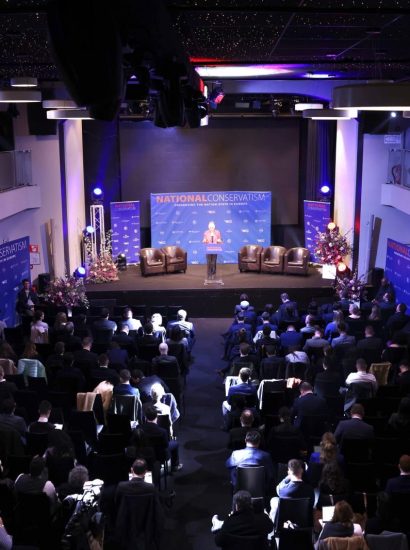
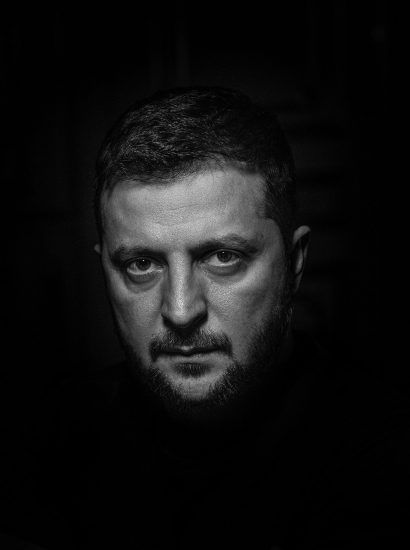
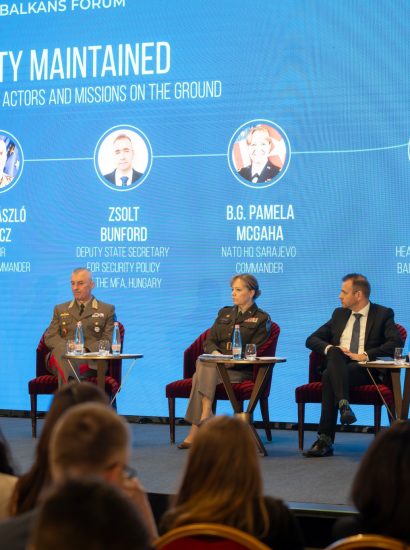
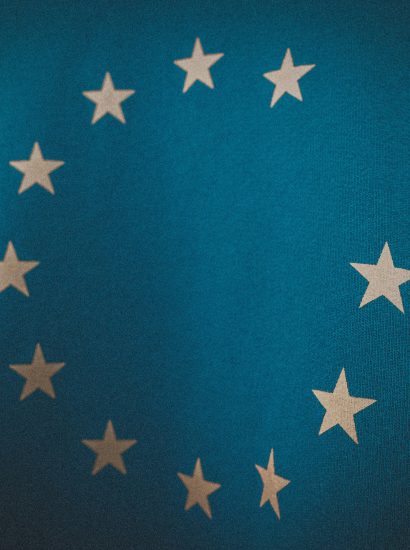
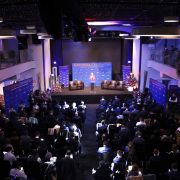
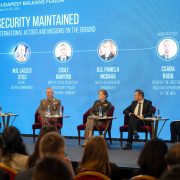
[…] only that but the cost of the war is increasing at a staggering rate. The latest joint assessment by the EU, World Bank and UN of Ukraine’s […]